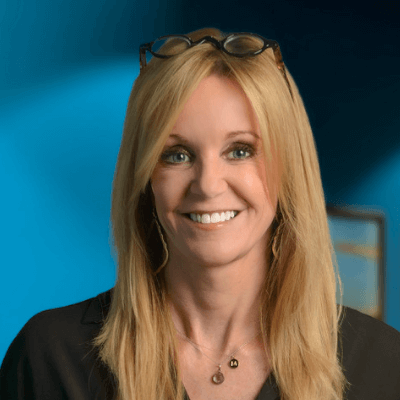
Conquering Projective Anxiety - Facing the Fears you Fear Facing
Fear is, well, one of the things we all fear the most. But guess what? Fear is normal. It’s a part of daily life. We all feel it at one time or another. And it's the perfect time of year to face your fears.
what is projective anxiety?
What you may not notice when you're feeling scared about the idea of something is that you may actually feel fear about your fear. We experience projective fear when we imagine a future event and anticipate the anxiety we might feel during the event.
When you consider, for example, speaking in public, taking a big financial risk, or having a difficult conversation with your partner, you might experience anxiety. Maybe you feel that clench in your stomach. That tightness in your throat and jaw.
When picturing that speaking engagement you may worry that you will freeze, make a mistake, or worse yet, not show up at all.
We are all at risk of giving into our fears in order to avoid facing them in the first place.
Ironic, yes?
If you’ve seen the movie, “Saving Private Ryan,” you’ve had a crash course in fear. (If you haven’t, I recommend you watch in light of the content of this article.)
Let me set the scene for you. It’s June of 1942 and you are a soldier crossing the English Channel headed to the beaches of German-occupied France. Your rifle is wrapped in plastic, and your clothes are wet. The seas are rough the skies a dank grey.
Your eyes are wide, your face frozen, expressionless. The soldiers around you begin vomiting in the boat. Finally, as you are near the beach, it’s time. The boat ramp rolls down. A shot rings out. The soldier beside you is shot in the forehead.
You and the other soldiers start flinging yourselves over the side of the boat, seeking safety in the water. And the bullets just keep coming. And coming. And coming.
It’s a truly terrifying scene.
Saving Private Ryan is based on a researched work, Citizen Soldiers, by Stephen Ambrose, a historian whose research focused on how and why a kid from a farm in Kansas could land on the battlefields of Europe and manage to rise to the occasion.
During his research, he interviewed survivors of World War II, heard their stories, and looked for themes.
One conclusion he reached was that the soldiers learned that fear was Inevitable but that it can be managed.
Read that sentence again. I’ll wait.
It turns out that fear is normal. It’s like gravity. It’s just part of the universe.
fear is not just a possibility, it is a certainty
You will feel fear. Sometimes crippling fear. Especially in certain situations.
Get used to it. Even better, learn to manage it.
So how do we do that? How do we manage this inevitable fear?
- Acknowledge that fear exists and that it’s not going anywhere. Don’t waste your time or energy trying to avoid it.
- Stop being mean to yourself about feeling fear. Notice it. Respect it. Accept it as fact.
- Use your body to control your mind. Nervous system management is a thing. You should manage your nervous system as you care for your cardiac health. Did you know you you can help control anxiety by breathing deeply from the belly? Breathing longer on the out-breath can lower your blood pressure. Did you know that a mindfulness/meditation practice can calm your nervous system? Did you know that psychotherapeutic yoga can use your body to teach your mind to stay calm — and that the effects can be cumulative?
- Consider consulting a pro. A clinician who specializes in anxiety should be able to help you learn to manage yours. Lifeologie offers multiple modalities to address fear and anxiety. From cognitive-behavioral therapy to psychotherapeutic yoga. We understand anxiety (because we’re all human and we feel it too). And we’re here to help. Reach out.
- Make the call. Even though it scares you to do so.
Find a Lifeologie Counseling therapist near you, or if you're in Texas, reach out to my team in Dallas at (214) 357-4001. Don't let fear and anxiety prevent you from living the life you are meant to live!

About Melanie Wells
Melanie Wells LPC-S, LMFT-S, RYT, PYT, the founder of Lifeologie Counseling, has been a therapist for over 25 years, specializing primarily in couples and marital therapy – particularly last ditch marriage counseling. She enjoys taking on the trickiest, stickiest relationship issues after couples have all but given up. She also works with clients navigating codependency and divorce recovery.
Meet Me



